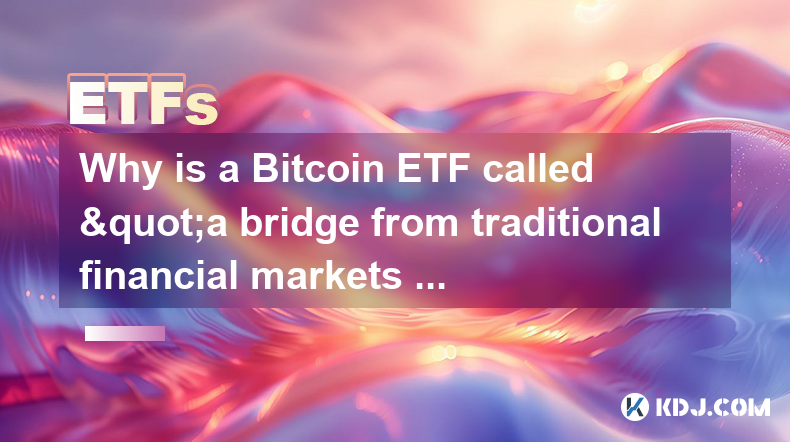-
 Bitcoin
Bitcoin $84,511.1544
1.57% -
 Ethereum
Ethereum $1,616.8895
2.64% -
 Tether USDt
Tether USDt $0.9996
-0.02% -
 XRP
XRP $2.1289
1.52% -
 BNB
BNB $585.3538
0.63% -
 Solana
Solana $128.8772
2.24% -
 USDC
USDC $0.9997
-0.03% -
 TRON
TRON $0.2518
-0.28% -
 Dogecoin
Dogecoin $0.1577
-2.53% -
 Cardano
Cardano $0.6325
-0.29% -
 UNUS SED LEO
UNUS SED LEO $9.4025
1.17% -
 Avalanche
Avalanche $20.0866
3.58% -
 Chainlink
Chainlink $12.6336
1.05% -
 Stellar
Stellar $0.2380
0.75% -
 Toncoin
Toncoin $2.8660
0.26% -
 Sui
Sui $2.1775
-1.65% -
 Shiba Inu
Shiba Inu $0.0...01194
-0.44% -
 Hedera
Hedera $0.1646
0.09% -
 Bitcoin Cash
Bitcoin Cash $324.1697
-4.94% -
 Litecoin
Litecoin $76.7294
-0.36% -
 Polkadot
Polkadot $3.6844
0.76% -
 Dai
Dai $0.9999
-0.01% -
 Hyperliquid
Hyperliquid $15.6633
3.87% -
 Bitget Token
Bitget Token $4.2787
0.04% -
 Pi
Pi $0.7363
2.23% -
 Ethena USDe
Ethena USDe $0.9989
-0.01% -
 Monero
Monero $214.6360
5.94% -
 Uniswap
Uniswap $5.3573
1.26% -
 OKB
OKB $52.8476
-0.10% -
 Pepe
Pepe $0.0...07260
0.99%
Why is a Bitcoin ETF called "a bridge from traditional financial markets to cryptocurrencies"?
Bitcoin ETFs bridge traditional finance and crypto by offering accessibility, simplification, regulatory acceptance, liquidity, risk management tools, and institutional investment opportunities.
Apr 09, 2025 at 08:57 pm

A Bitcoin Exchange Traded Fund (ETF) is often referred to as "a bridge from traditional financial markets to cryptocurrencies" due to its unique position in facilitating the integration of these two distinct financial ecosystems. This article will delve into the reasons behind this designation, exploring how Bitcoin ETFs serve as a crucial link between the established world of traditional finance and the burgeoning realm of digital currencies.
Accessibility for Traditional Investors
One of the primary reasons a Bitcoin ETF is considered a bridge is its ability to make cryptocurrencies more accessible to traditional investors. Traditional investors are often accustomed to trading stocks, bonds, and other conventional financial instruments through established brokerage accounts. A Bitcoin ETF allows these investors to gain exposure to Bitcoin without the need to directly purchase and manage the cryptocurrency themselves.
- Invest through familiar platforms: Investors can buy shares of a Bitcoin ETF through their existing brokerage accounts, just as they would with any other stock or ETF.
- Avoid complexities of crypto exchanges: By investing in a Bitcoin ETF, investors bypass the need to navigate cryptocurrency exchanges, which can be daunting for those unfamiliar with digital assets.
- Regulatory oversight: Bitcoin ETFs are subject to regulatory oversight, providing an additional layer of security and trust for traditional investors who are accustomed to regulated financial products.
Simplifying Investment in Cryptocurrencies
Bitcoin ETFs simplify the process of investing in cryptocurrencies, making it more appealing to a broader audience. Simplification is key in bridging the gap between traditional finance and the crypto world.
- No need for crypto wallets: Investors do not need to set up and manage cryptocurrency wallets, which can be a barrier for those new to digital assets.
- Eliminate technical barriers: The technical aspects of buying, storing, and securing Bitcoin are handled by the ETF issuer, reducing the learning curve for investors.
- Diversification: Investors can easily diversify their portfolios by adding Bitcoin exposure through an ETF, without the need to allocate a significant portion of their assets to a single cryptocurrency.
Regulatory Acceptance and Legitimacy
The introduction of Bitcoin ETFs has been a significant step towards the regulatory acceptance and legitimacy of cryptocurrencies within traditional financial markets. This acceptance is crucial in building a bridge between the two worlds.
- SEC approval: The approval of Bitcoin ETFs by regulatory bodies like the U.S. Securities and Exchange Commission (SEC) signals a level of acceptance and legitimacy for cryptocurrencies.
- Institutional involvement: The launch of Bitcoin ETFs often involves major financial institutions, further legitimizing cryptocurrencies in the eyes of traditional investors.
- Increased mainstream adoption: As Bitcoin ETFs gain traction, they contribute to the broader acceptance of cryptocurrencies as a legitimate asset class within traditional finance.
Liquidity and Market Integration
Bitcoin ETFs enhance the liquidity and market integration of cryptocurrencies, making them more compatible with traditional financial markets. This integration is essential for bridging the two ecosystems.
- Increased trading volume: Bitcoin ETFs can attract significant trading volume, increasing the overall liquidity of the cryptocurrency market.
- Price discovery: The trading of Bitcoin ETFs on traditional exchanges contributes to more efficient price discovery, aligning the cryptocurrency market more closely with traditional financial markets.
- Arbitrage opportunities: The existence of Bitcoin ETFs creates arbitrage opportunities between the ETF and the underlying Bitcoin, further integrating the two markets.
Risk Management and Hedging
Bitcoin ETFs provide traditional investors with tools for risk management and hedging, which are familiar concepts in the world of traditional finance. This aspect is crucial in bridging the gap between the two markets.
- Hedging against volatility: Investors can use Bitcoin ETFs to hedge against the volatility of the cryptocurrency market, a strategy commonly employed in traditional finance.
- Portfolio diversification: By including Bitcoin ETFs in their portfolios, investors can diversify their risk exposure, a practice well-established in traditional investment strategies.
- Options and futures: The availability of options and futures contracts on Bitcoin ETFs allows for more sophisticated risk management strategies, further aligning cryptocurrencies with traditional financial instruments.
Institutional Adoption and Investment
The introduction of Bitcoin ETFs has facilitated institutional adoption and investment in cryptocurrencies, a critical factor in bridging the gap between traditional finance and the crypto world.
- Institutional investors: Bitcoin ETFs provide a more palatable entry point for institutional investors, who may have been hesitant to directly invest in cryptocurrencies.
- Asset managers: Asset managers can include Bitcoin ETFs in their offerings, making it easier for their clients to gain exposure to cryptocurrencies.
- Pension funds and endowments: The availability of Bitcoin ETFs opens the door for pension funds and endowments to allocate a portion of their portfolios to cryptocurrencies, further integrating the two markets.
Frequently Asked Questions
Q: How does a Bitcoin ETF differ from directly owning Bitcoin?
A: A Bitcoin ETF differs from directly owning Bitcoin in several ways. When you invest in a Bitcoin ETF, you are buying shares of a fund that holds Bitcoin, rather than the cryptocurrency itself. This means you do not need to manage a cryptocurrency wallet or deal with the technical aspects of buying and securing Bitcoin. Additionally, Bitcoin ETFs are traded on traditional stock exchanges, making them more accessible to investors who are accustomed to trading conventional financial instruments.
Q: Can a Bitcoin ETF be used for long-term investment?
A: Yes, a Bitcoin ETF can be used for long-term investment. Investors who believe in the long-term potential of Bitcoin can hold shares of a Bitcoin ETF as part of their investment strategy. However, it's important to consider the fees associated with the ETF, as well as the overall performance of the fund, when making long-term investment decisions.
Q: Are there any risks associated with investing in a Bitcoin ETF?
A: Yes, there are risks associated with investing in a Bitcoin ETF. These include the volatility of the underlying Bitcoin price, the fees charged by the ETF, and the potential for regulatory changes that could impact the ETF's performance. Additionally, investors should be aware of the counterparty risk associated with the ETF issuer and the custodians holding the Bitcoin.
Q: How does the performance of a Bitcoin ETF compare to directly holding Bitcoin?
A: The performance of a Bitcoin ETF is generally designed to track the price of Bitcoin closely. However, there may be slight deviations due to factors such as fees, trading volume, and the ETF's structure. Over time, the performance of a Bitcoin ETF should be very similar to that of directly holding Bitcoin, but investors should monitor the tracking error to ensure the ETF is meeting its objectives.
Disclaimer:info@kdj.com
The information provided is not trading advice. kdj.com does not assume any responsibility for any investments made based on the information provided in this article. Cryptocurrencies are highly volatile and it is highly recommended that you invest with caution after thorough research!
If you believe that the content used on this website infringes your copyright, please contact us immediately (info@kdj.com) and we will delete it promptly.
- Vaulta Emerges from Its Past with a Renewed Focus on Practical Finance and Compliance-First Blockchain Infrastructure
- 2025-04-15 04:50:13
- Render Network (RNDR), SEI and Bittensor (TAO) lead crypto AI sector despite 5% daily drop
- 2025-04-15 04:50:13
- HYPE is showing early signs of a bullish reversal, with a potential inverse head and shoulders pattern forming
- 2025-04-15 04:45:13
- BlockDAG (BDAG) Captures Developer Attention with Complete Smart Contract Features and Growing $214M Presale
- 2025-04-15 04:45:13
- title: RWA-Focused Crypto Project MANTRA (OM) Loses $5.431B of Market Cap in Overnight Collapse of Its Native Token
- 2025-04-15 04:40:15
- Trump's Tariffs Just Supercharged Bitcoin – Here's What's Coming
- 2025-04-15 04:40:15
Related knowledge

What is the difference in returns between long-term holding of a Bitcoin ETF and holding Bitcoin directly?
Apr 09,2025 at 04:15am
When considering the difference in returns between long-term holding of a Bitcoin ETF and holding Bitcoin directly, it's essential to understand the nuances and factors that affect each investment option. Both approaches have their unique advantages and potential drawbacks, which can significantly impact the overall returns over time. Understanding Bitc...

How is the "roll cost" of a futures Bitcoin ETF generated?
Apr 08,2025 at 01:22pm
The 'roll cost' of a futures Bitcoin ETF is a critical concept for investors to understand, as it directly impacts the performance of the ETF. In this article, we will delve into the mechanics of how the roll cost is generated, exploring the underlying processes and factors that contribute to this cost. Understanding Futures ContractsFutures contracts a...

How can the premium or discount of a Bitcoin ETF be narrowed through an arbitrage mechanism?
Apr 09,2025 at 12:07am
Arbitrage mechanisms play a crucial role in narrowing the premium or discount of a Bitcoin Exchange Traded Fund (ETF). Understanding how these mechanisms work can provide valuable insights into the dynamics of Bitcoin ETFs and their relationship with the underlying asset. This article will delve into the specifics of how arbitrage can be used to align t...

What factors affect the bid-ask spread of a Bitcoin ETF?
Apr 08,2025 at 08:50pm
The bid-ask spread of a Bitcoin Exchange Traded Fund (ETF) is a critical metric that investors and traders closely monitor. It represents the difference between the highest price a buyer is willing to pay (bid) and the lowest price a seller is willing to accept (ask). Several factors influence this spread, and understanding them can help investors make ...

How is the seed capital of a Bitcoin ETF used?
Apr 10,2025 at 02:15pm
The seed capital of a Bitcoin ETF plays a crucial role in the establishment and operation of the fund. This initial investment is used to create the fund's underlying assets, manage operational costs, and ensure the ETF can start trading on an exchange. Understanding how this seed capital is utilized provides insight into the mechanics of Bitcoin ETFs a...

What is the difference between "physically backed" and "synthetic" Bitcoin ETFs in terms of holding assets?
Apr 10,2025 at 04:56pm
Bitcoin Exchange Traded Funds (ETFs) have become a popular way for investors to gain exposure to the cryptocurrency market without directly owning the underlying asset. There are two primary types of Bitcoin ETFs: physically backed and synthetic. Understanding the differences between these two types, particularly in terms of how they hold assets, is cru...

What is the difference in returns between long-term holding of a Bitcoin ETF and holding Bitcoin directly?
Apr 09,2025 at 04:15am
When considering the difference in returns between long-term holding of a Bitcoin ETF and holding Bitcoin directly, it's essential to understand the nuances and factors that affect each investment option. Both approaches have their unique advantages and potential drawbacks, which can significantly impact the overall returns over time. Understanding Bitc...

How is the "roll cost" of a futures Bitcoin ETF generated?
Apr 08,2025 at 01:22pm
The 'roll cost' of a futures Bitcoin ETF is a critical concept for investors to understand, as it directly impacts the performance of the ETF. In this article, we will delve into the mechanics of how the roll cost is generated, exploring the underlying processes and factors that contribute to this cost. Understanding Futures ContractsFutures contracts a...

How can the premium or discount of a Bitcoin ETF be narrowed through an arbitrage mechanism?
Apr 09,2025 at 12:07am
Arbitrage mechanisms play a crucial role in narrowing the premium or discount of a Bitcoin Exchange Traded Fund (ETF). Understanding how these mechanisms work can provide valuable insights into the dynamics of Bitcoin ETFs and their relationship with the underlying asset. This article will delve into the specifics of how arbitrage can be used to align t...

What factors affect the bid-ask spread of a Bitcoin ETF?
Apr 08,2025 at 08:50pm
The bid-ask spread of a Bitcoin Exchange Traded Fund (ETF) is a critical metric that investors and traders closely monitor. It represents the difference between the highest price a buyer is willing to pay (bid) and the lowest price a seller is willing to accept (ask). Several factors influence this spread, and understanding them can help investors make ...

How is the seed capital of a Bitcoin ETF used?
Apr 10,2025 at 02:15pm
The seed capital of a Bitcoin ETF plays a crucial role in the establishment and operation of the fund. This initial investment is used to create the fund's underlying assets, manage operational costs, and ensure the ETF can start trading on an exchange. Understanding how this seed capital is utilized provides insight into the mechanics of Bitcoin ETFs a...

What is the difference between "physically backed" and "synthetic" Bitcoin ETFs in terms of holding assets?
Apr 10,2025 at 04:56pm
Bitcoin Exchange Traded Funds (ETFs) have become a popular way for investors to gain exposure to the cryptocurrency market without directly owning the underlying asset. There are two primary types of Bitcoin ETFs: physically backed and synthetic. Understanding the differences between these two types, particularly in terms of how they hold assets, is cru...
See all articles























































































